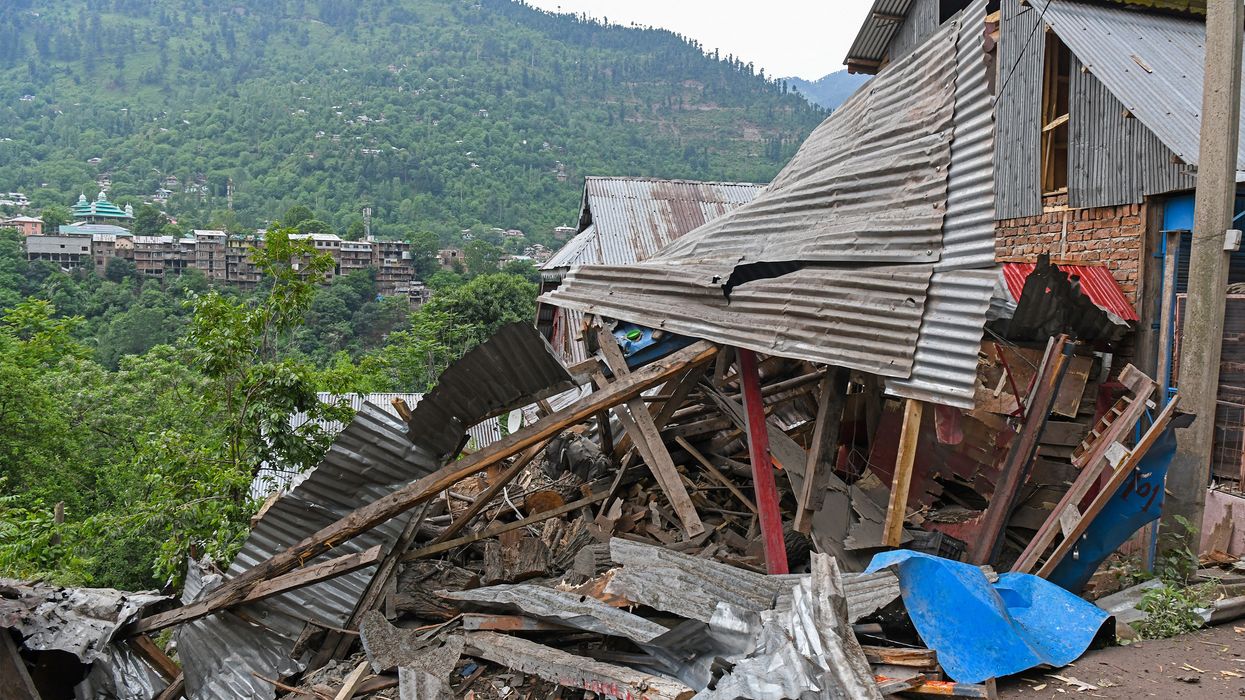INDIA said on Friday (9) it repelled multiple drone and artillery attacks launched by Pakistan overnight, as tensions continued following deadly cross-border violence this week. Islamabad denied launching any attacks, while both sides reported new casualties and damage.
"Pakistan Armed Forces launched multiple attacks using drones and other munitions along entire Western border on the intervening night of 08 and 09 May," the Indian army said in a statement. "The drone attacks were effectively repulsed and befitting reply was given."
India said earlier that Pakistani forces targeted three of its military stations — two in Kashmir and one in Punjab — but Pakistan denied this. "Pakistan has not targeted any locations in Indian Illegally Occupied Jammu & Kashmir, or across international border, so far," Pakistan's information minister Ataullah Tarar said late Thursday.
ALSO READ: India-Pakistan conflict: British parliament appeals for de-escalation
The escalation began after India carried out air strikes on Wednesday targeting what it described as "terrorist camps" in Pakistan. New Delhi said the action followed an attack on 22 April near Pahalgam in Indian-administered Kashmir, which killed 26 people, most of them Hindu tourists. India has blamed the Pakistan-based Lashkar-e-Taiba, a UN-designated terrorist organisation, for the attack. Pakistan has denied involvement and called for an independent investigation.
In Indian-administered Kashmir, a police official reported that one woman was killed and two men were wounded in heavy shelling in Uri, about 100 kilometres from Srinagar.
Nearly 50 people have died on both sides since the Indian air strikes on Wednesday, according to officials. Most casualties have been reported in Pakistan, where at least 32 people, including 12 children, have been killed.
ALSO READ: UK says ready to help India and Pakistan de-escalate tensions
Islamabad said on Thursday that its forces had shot down 29 Israeli-made Harop drones during attacks on cities including Rawalpindi. The city hosts Pakistan’s military headquarters and was also hosting a Pakistan Super League cricket match. The remaining matches of the tournament have now been moved to the United Arab Emirates.
India has closed 24 airports to civilian flights, including in cities such as Jodhpur, Ludhiana and Amritsar. Airlines including Air India, IndiGo and SpiceJet have cancelled over 100 flights since Wednesday. Passengers have been advised to arrive at least three hours before departure due to enhanced security. Local media reports suggest that flight operations may resume by Saturday morning.
Schools remained closed on Friday in parts of Kashmir, six border districts in Punjab, the city of Chandigarh, and parts of Rajasthan.
ALSO READ: What is Operation Sindoor, India's strikes in Pakistan?
A senior Indian cricket official said the board would decide on Friday whether to continue the rest of the IPL season. A match in Dharamsala, around 200 kilometres from Jammu where explosions had been reported earlier, was abandoned late Thursday following a floodlight failure.
India has also directed social media platform X to block more than 8,000 accounts. The company said it was reluctantly complying with what it called "government-imposed censorship". The move appears to be part of a crackdown on Pakistani political figures, media, and celebrities on social media.
International leaders have urged restraint. US secretary of state Marco Rubio spoke with leaders in both countries on Thursday and called for "immediate de-escalation". US vice president JD Vance echoed the appeal, stating Washington would not intervene in what he called a conflict "that’s fundamentally none of our business".
Iranian foreign minister Abbas Araghchi met with Indian external affairs minister Subrahmanyam Jaishankar in New Delhi on Thursday, days after visiting Pakistan.
Pakistan prime minister Shehbaz Sharif said in a televised address on Wednesday that his country would "avenge" those killed by Indian air strikes. Amnesty International called on both sides to "take all necessary measures to protect civilians and minimise any suffering and casualties."
(With inputs from agencies)





